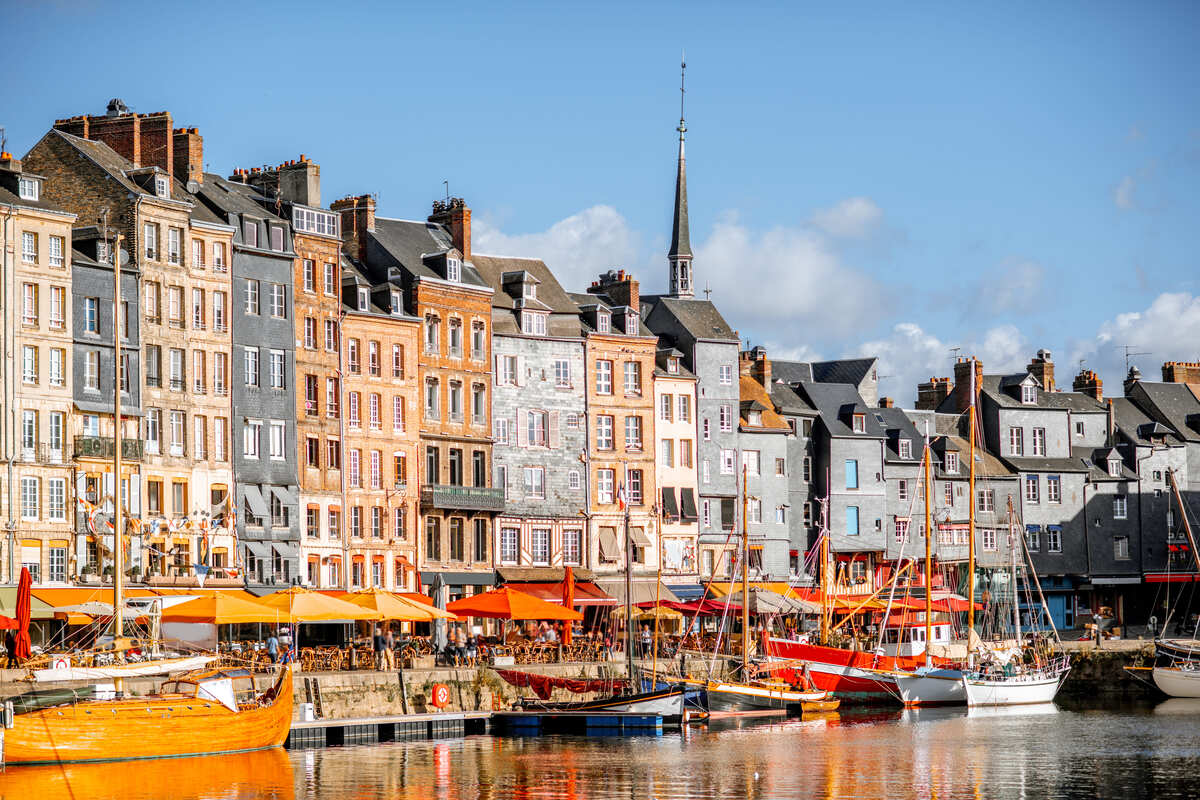Last Updated
A vast continent rich in historical landmarks, Europe is the number one place to be this season if you’re a culture buff.
This is especially true now that temperatures are rising and a host of nonstop flights are relaunching to several of its trendiest destinations, but there’s a catch.


As demand grows, the cost of vacations increases dramatically, and they may well be stunning, but cities like London, Paris and Milan wouldn’t be at the top of our summer wishlist: we’ll leave them for those with a hefty budget and who don’t mind the crowds.
Instead, you can find us in these 4 medieval gems that not only are just as fascinating but are quieter and far easier on the wallet:
Honfleur, France


Only two-and-a-half hours from Paris, Honfleur is a historic harbor town on the Normandy coast that locals successfully managed to hide from most foreigners who visit France: whether it’s peak or off-season, they all tend to bypass it altogether.
Interestingly enough, this is one of the best-preserved and prettiest medieval settlements in France.
It is famous for its Vieux-Bassin, a picturesque waterfront lined by 16th-century buildings, Église Sainte Catherine, the largest wooden church in the country, and cobbled alleys.


It has also posed as muse for none less than Claude Monet, who painted its sandy beach in the summer of 1864, as well as Rue de la Bavole, an impressionist effort depicting a narrow street in Honfleur that is still flanked by colorful cafes and half-timbered houses.
Despite being in France, one of the most expensive countries in Europe, Honfleur is relatively affordable, with lunchtime menus in local restaurants costing $15-17—make sure you try local dish Coquille Saint-Jacques—and hotel overnights starting from $76.
Granada, Spain


Tucked away in the hinterlands of Andalusia in Spain, the Moorish Granada is one of the top destinations for soaking up the culture in Europe in the warmest months, and it’s only a 1h20 train ride from jam-packed coastal resort Malaga.
Granada is characterized by a whitewashed, hilly Old Town, dating back to the period of Islamic rule in Spain, when the country succumbed to the rule of Muslim dynasties from North Africa, and other than its eclectic architecture, it’s best-known for its Alhambra Fortress.


The bucket-list palace was built by the invading Moors in an attempt to assert power over the territory, and it remains one of the most important Islamic monuments to have survived in Spain following the Reconquista, when the Christians took back control.
Lucky for the budget-conscious, Granada, and Andalusia as a whole is pretty affordable to visit: a lunch consisting of Andalusian salmorejo, deep-fried fish (pescaito frito) and a drink can cost $17, and booking a single room in the city center will set you back by $50-69.
Gdansk, Poland


Straddling the Baltic Coast, Gdańsk is a rare example of a medieval port this far northeast in Europe that’s re-emerged as glorious as it once was, in spite of being showered with bombs in World War II, and if you’re asking us, it’s easily Poland’s most beautiful.
The Old Town is an absolute marvel, with a long, pedestrianized main street (Długa) bordered by tall, skinny façades, coming in varying tones of muted green, yellow and red, as dictated by Northern Mannerism, and tall towers and spires piercing the otherwise-low skyline.


If you’re a Middle Ages aficionado, some of Gdańsk’s main points of interest you shouldn’t miss are the Basilica of St. Mary, one of the three largest brick structures in the world, the ornate Golden Gate, and the iconic wooden ‘Crane’, dated to 1367.
As it is yet to adopt the euro, and thanks to the lower cost of living, vacationing in Poland is a lot more affordable compared to Western Europe: there are spa hotels costing from $64 to book per night, and you can definitely get by on $55 per day on average.
Varazdin, Croatia


Tucked away in the hinterland of Croatia, miles away from the jam-packed coast, and near the tripoint border with Slovenia and Hungary, Varazdin is a historic city first referenced in the 12th-century, distinct for its Baroque wealth and whitewashed citadel.
Strolling the pastel-colored Old Town, you’ll find a myriad of casual cafes, textile shops, which produce Varazdin’s most prized export, and traditional Slavonian restaurants where you can sample food native to this part of Croatia, namely meat stews and pork sausages.


As you might have guessed, Varazdin exists in a different world altogether than Dalmatian cities like Dubrovnik and Split: while they are strongly Italian in character, owing to centuries of Mediterranean trade and values, this 40,000-people-strong settlement is distinctly Slavic.
You can see it in the architecture, which is clearly Central European-leaning as opposed to Venetian, the ethnic makeup of the local populace, less tanned than their average Dalmatian counterparts, and, of course, the verdant plains surrounding the town and its milder climate.


Varazdin is a short one-hour bus ride from Zagreb, the equally-underrated, non-coastal capital of Croatia, and if you’re wondering about prices, a 3-night stay in a central, moderately-luxurious hotel will cost $269 on average, while meals in local restaurants are 31% cheaper than in the touristy Dalmatia.
↓ Elevate Your Travel↓
Sign Up Now For Travel Off Path Premium! No ads, VIP Content, Personal Travel Concierge, Huge Savings, Daily Deals, Members Forum & More!


✈️Join Our Travel Off Path Community Forum: Where travelers unite, ask questions, share experiences and even find like-minded travel buddies!
SUBSCRIBE TO OUR LATEST POSTS
Enter your email address to subscribe to Travel Off Path’s latest breaking travel news, straight to your inbox.
This article originally appeared on TravelOffPath.com
Opinions expressed here are the author’s alone, not those of any bank, credit card issuer, hotel, airline, or other entity. This content has not been reviewed, approved or otherwise endorsed by any of the entities included within the post.

